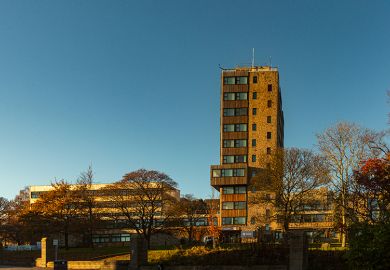Using data supplied by 21 higher education institutions, the University and College Union study finds that white people applying for professorships are far more likely to be shortlisted for an interview than those from black and minority ethnic (BME) backgrounds and were also more likely to get appointed.
Of the 1,646 white applicants who applied at these institutions between August 2008 and July 2011, 348 were eventually appointed - a success rate of 21 per cent - compared with the 41 of 583 BME applicants given a position - a 7 per cent success rate - the report says.
At senior lecturer level, the success rate for BME applicants was just 4 per cent (109 appointed out of a possible 2,742 candidates) compared with the 11.8 per cent rate for white applicants (456 out of 3,863 candidates).
The report, titled The Position of Women and BME staff in Professorial Roles in UK Higher Education Institutions, published on 29 January, also finds BME staff make up 13 per cent (19,405) of non-professorial academic staff across all UK higher education institutions, but only 7.3 per cent (1,195) of professorial roles.
Meanwhile, women make up 46.8 per cent (76,500) of non-professorial academic staff, but only 19.8 per cent (3,450) of the professoriate.
At the current pace of change it will take almost 40 years for the proportion of female professors to reach the same level as the proportion of female staff in universities and almost 16 years for black and minority ethnic (BME) staff, the report says.
The report has called for universities to take decisive steps to address the shortage of women and BME staff in the upper echelons of academia.
Steps to be taken should include the introduction of a transparent professorial grading structure, the collection of equality data in relation to recruitment and retention and the setting of targets for female and BME representation.
Sally Hunt, UCU general secretary said: “We are allowing thousands of staff, who have built up years of knowledge and experience, never to realise their full potential.
“It’s like athletes training to Olympic standard but never entering an [Olympic] Games,” she added.
“We want universities to take decisive action to stop this terrible waste of talent. They need to examine the reasons why women and black and minority ethnic staff stop climbing the career ladder, and develop new, effective strategies to support them to reach the top.”
The report’s information was obtained by submitting Freedom of Information requests to all UK universities, of whom 23 replied with comprehensive data.
The report also found women professors earn about 6 per cent less than male professors - a figure that has stayed broadly the same since 2003.
Black professors earned 9.4 per cent less than white counterparts, Chinese professors earned 6.7 per cent less, mixed race 3.5 per cent less, while Asian professors earned 4 per cent more.
Register to continue
Why register?
- Registration is free and only takes a moment
- Once registered, you can read 3 articles a month
- Sign up for our newsletter
Subscribe
Or subscribe for unlimited access to:
- Unlimited access to news, views, insights & reviews
- Digital editions
- Digital access to THE’s university and college rankings analysis
Already registered or a current subscriber? Login



